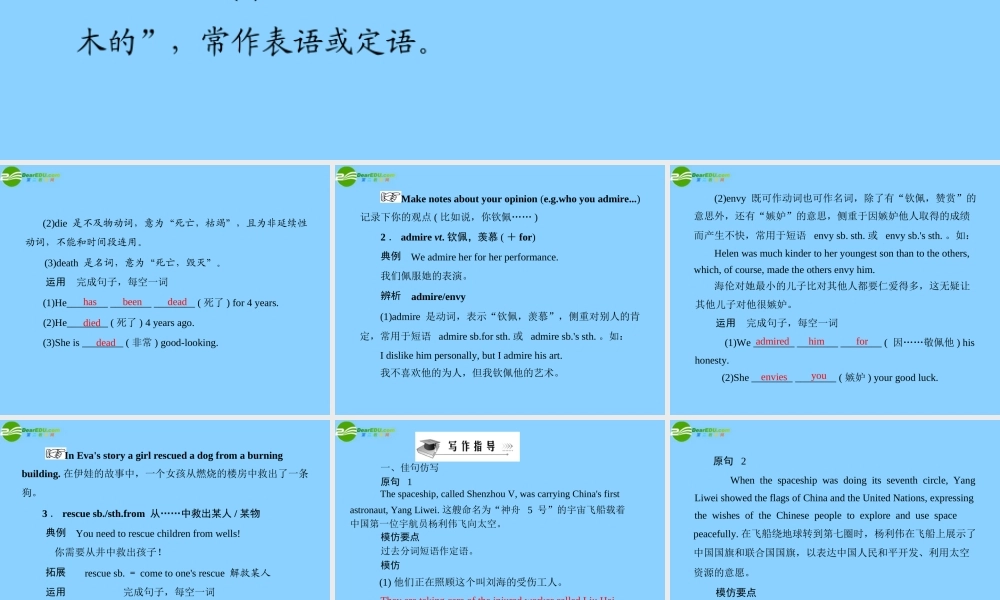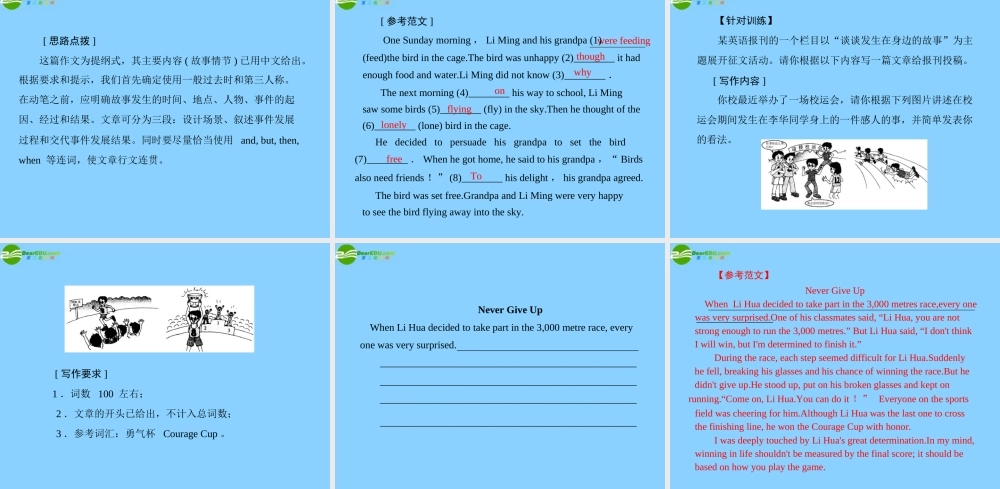Communication WorkshopYou're dead right. 你完全正确。1 . dead adv. 完全地,绝对地典例He was dead lucky to get that job.他得到了那份工作,真是太幸运了。拓展(1)dead 还可作形容词,意为“死的;无生命的;麻木的”,常作表语或定语。(2)die 是不及物动词,意为“死亡,枯竭”,且为非延续性动词,不能和时间段连用。hasbeendead(3)death 是名词,意为“死亡,毁灭”。运用完成句子,每空一词(1)He________ ________ ________ ( 死了 ) for 4 years.(2)He________ ( 死了 ) 4 years ago.died(3)She is ________ ( 非常 ) good-looking.deadMake notes about your opinion (e.g.who you admire...)记录下你的观点 ( 比如说,你钦佩…… )2 . admire vt. 钦佩,羡慕 ( + for)典例We admire her for her performance.我们佩服她的表演。辨析admire/envy(1)admire 是动词,表示“钦佩,羡慕”,侧重对别人的肯定,常用于短语 admire sb.for sth. 或 admire sb.'s sth. 。如:I dislike him personally, but I admire his art.我不喜欢他的为人,但我钦佩他的艺术。(2)envy 既可作动词也可作名词,除了有“钦佩,赞赏”的意思外,还有“嫉妒”的意思,侧重于因嫉妒他人取得的成绩而产生不快,常用于短语 envy sb. sth. 或 envy sb.'s sth. 。如:Helen was much kinder to her youngest son than to the others,which, of course, made the others envy him.海伦对她最小的儿子比对其他人都要仁爱得多,这无疑让其他儿子对他很嫉妒。admiredhimfor运用完成句子,每空一词(1)We ________ ________ ________ ( 因……敬佩他 ) hishonesty.enviesyou(2)She ________ ________ ( 嫉妒 ) your good luck.In Eva's story a girl rescued a dog from a burningbuilding. 在伊娃的故事中,一个女孩从燃烧的楼房中救出了一条狗。3 . rescue sb./sth.from 从……中救出某人 / 某物典例You need to rescue children from wells!你需要从井中救出孩子!拓展运用 rescue sb. = come to one's rescue 解救某人 完成句子,每空一词 He was trying to ________ the boy ________ ( 从……中解救 ) the big fire.rescuefrom一、佳句仿写原句 1The spaceship, called Shenzhou...



